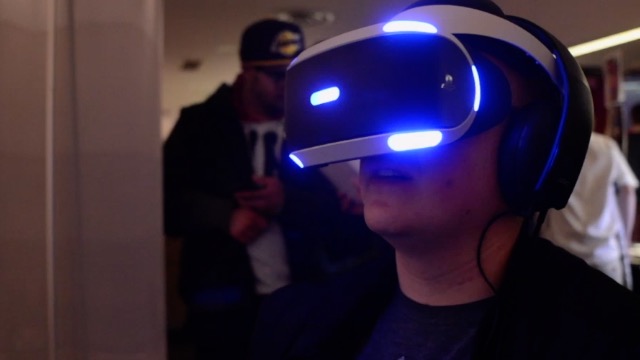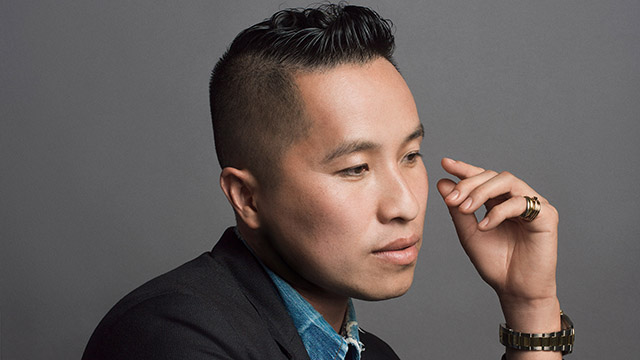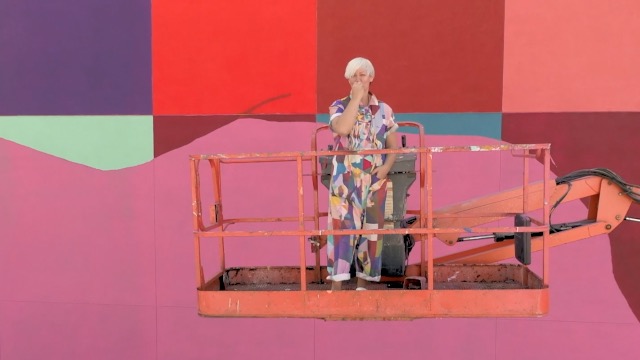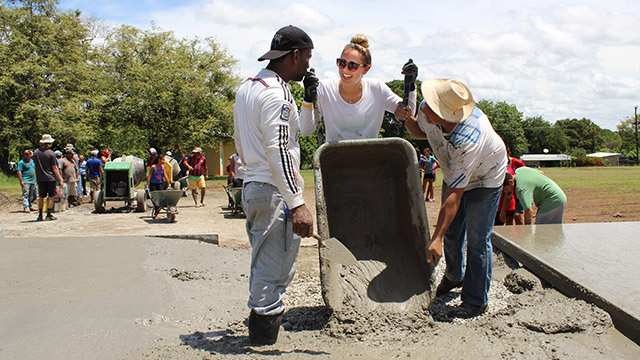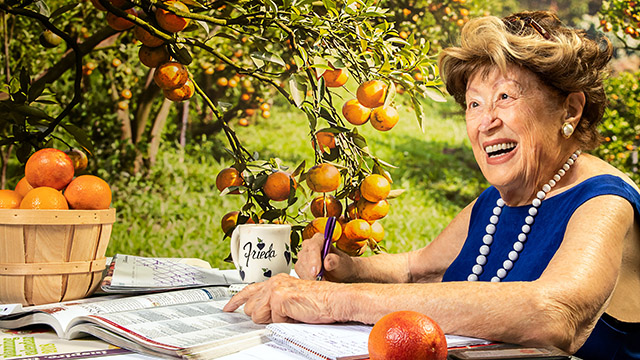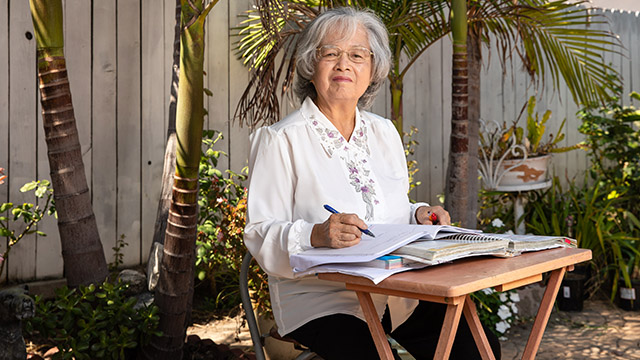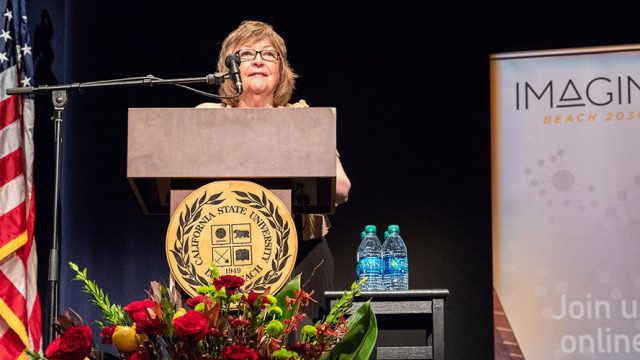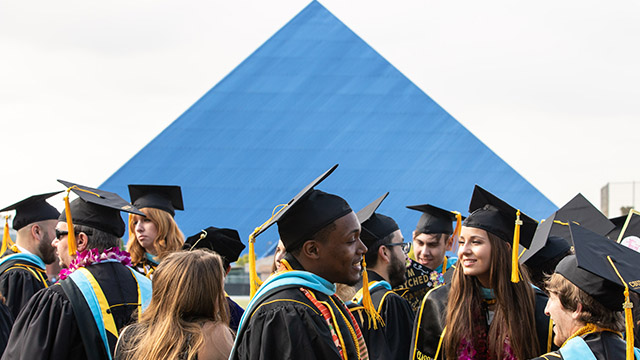Mix Master
Oliver Wang is sitting in his record room surrounded by hundreds of albums lining shelves from floor to ceiling and spilling out into plastic milk crates. He checks email on his laptop in between takes as we make photos of him to accompany this interview. The setting is fitting, capturing some of who Wang is and why he was perhaps the best person to produce his latest work.
A devoted disciple of hip-hop in the ’90s, Wang has amassed an impressive collection of albums of all genres, which he also uses to spin as a DJ.
He’s well known in the arts and entertainment community throughout Los Angeles, as an expert commentator and journalist covering pop music, culture and politics. Along with his contributions to the L.A. Times, NPR and KPCC, he is a panelist on “Pop Rocket,” a weekly pop culture podcast.
When it comes to popular culture, Oliver Wang is a recognized expert. Here are five things he has on his radar that you should, too:
SHOW TO WATCH: Master of None on Netflix. PERSON TO WATCH Daisy Ridley and John Boyega, the two new stars of Star Wars: The Force Awakens. Whatever the shortcomings of that film aside, they both put in strong performances especially in having to carry the weight of this franchise on their proverbial shoulders. MUSIC TO LISTEN TO: Long Beach artist Vince Staples’ album “Summertime ’06.” (His Twitter, @vincestaples, is also uproariously entertaining, too.) BOOK TO READ: “Blowin Up: Rap Dreams in South Central” by Jooyoung Lee. It’s an ethnography of the hip-hop scene based around Leimert Park, Los Angeles which has been one of the creative epicenters of the rap world since the early 1990s. SOCIAL CHANNEL TO FOLLOW: Ta-Nehisi Coates on Twitter @tanehisicoates, recent winner of the National Book Award for “Between the World and Me.”
As an associate professor of sociology at CSULB, he’s taught a variety of classes from Intro to Sociology to a course on race, class and gender. Last fall, Wang taught a course in the University Honors Program on arts and culture in Los Angeles and this spring, he teaches the Sociology of Pop Culture.
We spoke with Wang about his new book “Legions of Boom: Filipino American Mobile DJ Crews in the San Francisco Bay Area.” His first academic work, the book documents the mobile DJ movement that dominated the Filipino community in the ’80s, and has gone relatively unnoticed until now.
On mobile DJs “On a basic level, a mobile DJ is a DJ who supplies music and lighting services for an event like a wedding, school dance or birthday party. What makes it mobile is they have equipment they bring, set up and take with them.”
On who the mobile DJs were “Overwhelmingly, these guys were high school students. When they graduated or were mid-way through their early 20s, they would decide to leave the scene. Their original ambition was never to make DJ-ing a lifelong activity or career. They got into it because it was a fun thing to do and a formative moment in their lives that created friendships that have lasted for these 30 years.”
On why DJ-ing was huge for Filipino-Americans “First and foremost, it’s a party-based culture and music across communities and time has always been a way in which you can get people to congregate. Common destinations become a way to socially unify people. Parties gave Filipino-Americans a common sense of identity and it brought them across different neighborhoods to create a broader community. Being part of this scene helped define what it meant to be a young Filipino in this community.”
On why this movement went unnoticed “In a lot of ways that has to do with the broader social invisibility that Filipino-Americans have had to struggle with for decades. It reflects the way Filipinos historically have been marginalized within American pop culture, mass media and social movements and the like so that their accomplishments largely go unseen by the rest of society.”
On doing the work “I got the opportunity to interview famous Filipino DJs like Q-Bert, Shortkut and Apollo and the one common thread they had is that they all first got started as mobile DJs in the Bay Area. That became the basis for a story I wrote for the San Francisco Bay Guardian, which became the basis for my dissertation research. Many years later it’s become this book.”
On being the first to write about this movement “As a journalist and a scholar, when you come across a phenomenon that no one else seems to have studied or reported on, that becomes the compelling thing to chase after. One of the things that stuck with me was that a lot of my respondents said I was the first person to ever ask them about these stories, which surprised me.”



